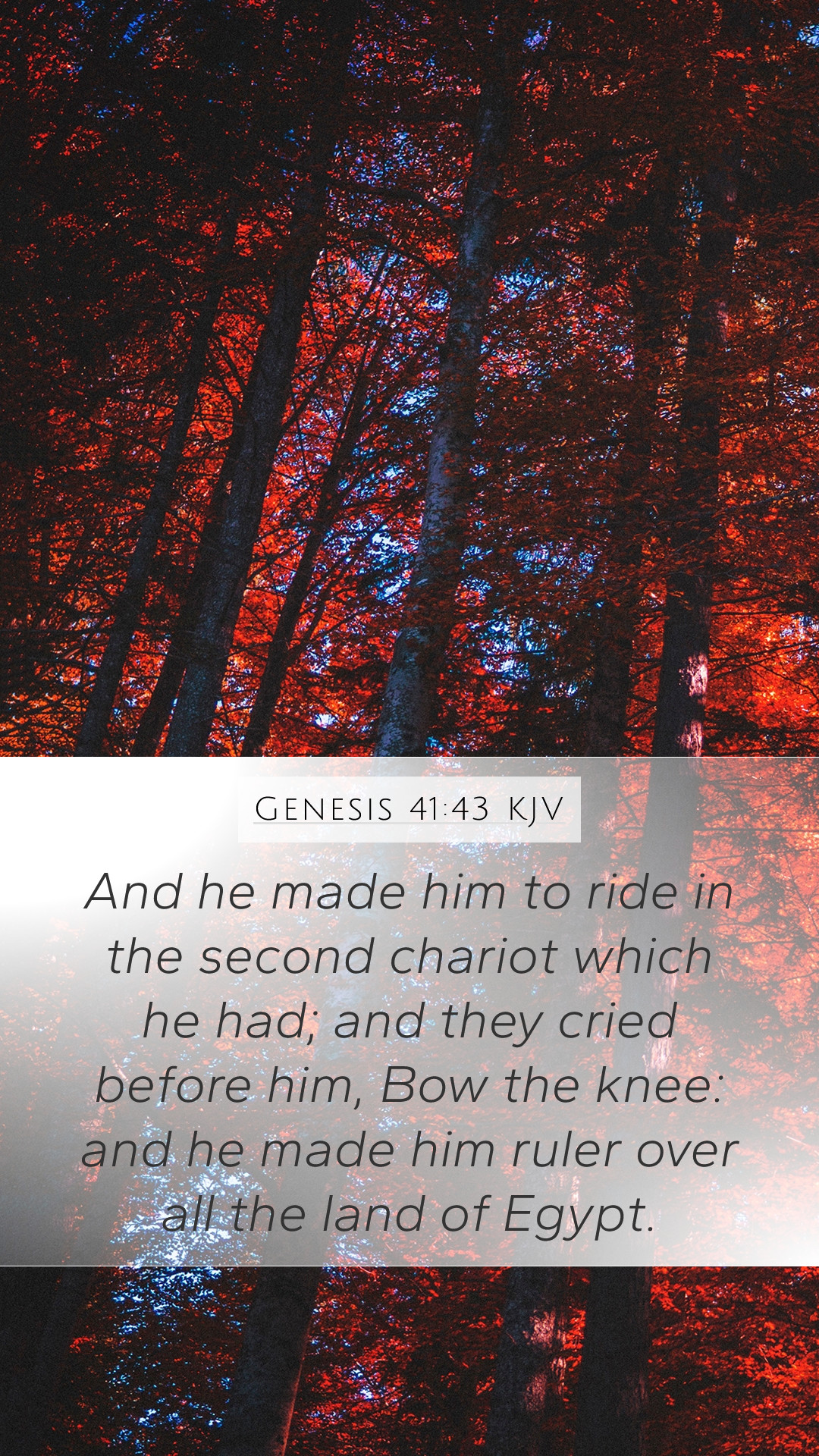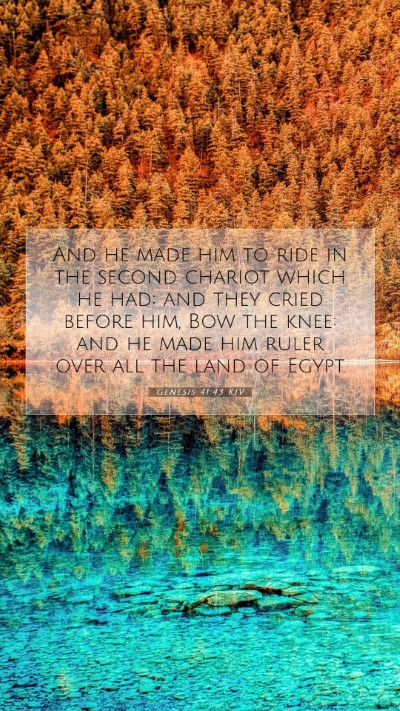Understanding Genesis 41:43
Genesis 41:43 reads: “And he made him to ride in the second chariot which he had; and they cried before him, Bow the knee: and he made him ruler over all the land of Egypt.” This verse follows the narrative of Joseph's rise to power after interpreting Pharaoh's dreams, which foretold a coming famine. The significance of this event highlights God's providential work in Joseph's life and the larger plan for Israel.
Bible Verse Commentary
This section combines insights from various public domain commentaries to provide a comprehensive view of Genesis 41:43.
-
Matthew Henry’s Commentary:
Henry emphasizes the supreme authority Joseph gains in Egypt, illustrating a fulfillment of God's promise to elevate him. The act of riding in Pharaoh's second chariot signifies Joseph's high status, and the command to "bow the knee" indicates the respect he commanded. This elevation was not merely for self-glory but for the purpose of preserving God's people during a time of crisis.
-
Albert Barnes’ Notes:
Barnes notes the cultural importance of the chariot in ancient Egypt, serving as a symbol of royal dignity. The phrase "bow the knee" is an invitation to recognize Joseph's authority, foreshadowing the reverence due to him and revealing the dramatic turn of fortunes that God orchestrated. His position enabled him to manage the impending famine effectively, demonstrating divine wisdom in governance.
-
Adam Clarke’s Commentary:
Clarke reflects on the significance of Joseph’s authority over Egypt and how it forms a critical foundation for the subsequent narrative involving his family. Joseph’s rise is an essential aspect of God's plan for the Israelites, and Clarke emphasizes Joseph's character and integrity, which had been tested throughout his life up to this point. His new role is part of God's master plan, highlighting faithfulness in hardship.
Meaning of the Verse
Genesis 41:43 encapsulates themes of authority, recognition, and divine providence. Joseph, once a slave and prisoner, is now exalted to a place of power. His journey underscores the principle that God can elevate those who are faithful, irrespective of their circumstances. The command to “bow the knee” signifies both reverence and acknowledgment of God’s hand in Joseph’s elevation.
Application of Genesis 41:43 to Daily Life
For contemporary readers, this verse encourages faithfulness in trials, anticipating God's timing for promotion or recognition. It serves as a reminder that positions of authority should be used to serve others, just as Joseph’s role involves preparing Egypt for the famine. This can inspire individuals in various fields to act with integrity and wisdom, reflecting God’s character in their roles.
Cross References
- Genesis 37:19-20 - Joseph’s brothers plot against him, highlighting his trials.
- Genesis 41:14 - Pharaoh summons Joseph from prison, marking the pivotal moment of his elevation.
- Acts 7:9-10 - Stephen recalls Joseph’s story, underscoring God’s faithfulness throughout his plight.
Conclusion
Genesis 41:43 is not merely a historical account but serves as a rich text for Bible study insights. Understanding this verse enhances one’s Bible verse meaning and Bible verse interpretation skills, providing a profound lesson on God's timing, the importance of integrity, and the sovereignty within trials. Individuals engaged in Bible study groups or online Bible study can use this analysis as a part of their Bible study lessons or Bible study guides to deepen their understanding of Scripture.


